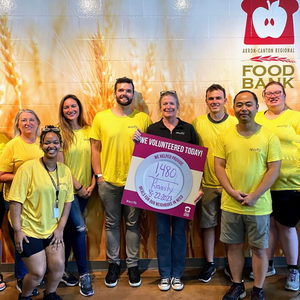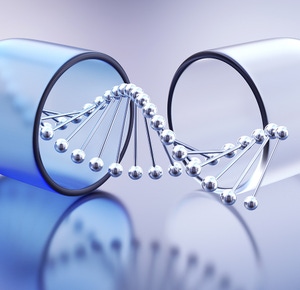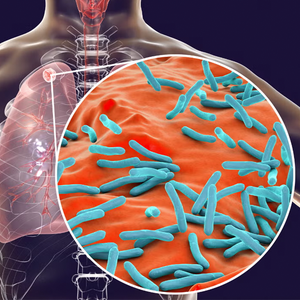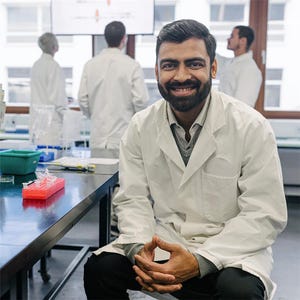
Ultrarapid Whole Genome Sequencing TRIO
Ultrarapid Whole Genome Sequencing TRIO
Ultrarapid Whole Genome Sequencing TRIO
Ultrarapid diagnostic whole genome sequencing and mitochondrial genome sequencing of the proband and 2 family members
| Test Code | D2310 |
|---|---|
| Test Summary |
Ultrarapid diagnostic whole genome sequencing and mitochondrial genome sequencing of the proband and 2 family members |
| Turn Around Time | 5 - 8 days |
| Acceptable Sample Types | DNA, Isolated , Dried Blood Spots , Saliva , Whole Blood (EDTA) |
| Acceptable Billing Types | Institutional Billing , Self (patient) Payment |
| NY Approved | Yes |
| CPT Codes** | 81243(x1), 81425(x1), 81426(x1), 81479(x2), 81329(x1), 81460(x1) |
| Self (patient) Price | $6,000.00 |
|---|---|
| Institutional Price | $6,950.00 |
**The CPT codes listed are in accordance with Current Procedural Terminology, a publication of the American Medical Association, and are provided for informational purposes only. CPT coding is the sole responsibility of the billing party.
This testing service has not been cleared or approved by the U.S. Food and Drug Administration. Testing services may not be licensed in accordance with the laws in all countries. The availability of specific test offerings is dependent upon laboratory location.
Test information
Test description
Ultrarapid Genome Sequencing includes:
- Mean coverage of 40X or greater with complete coverage of more than 99% of the exome, including over 5,400 disease-associated genes
- Analysis of single nucleotide variants (SNVs), deletions, and duplications in coding and non-coding regions of the genome
- Reliable detection of large-scale copy number variants (CNVs), including microdeletions and other gene- and chromosomal-level events
- Mitochondrial genome sequencing and analysis of SNVs as low as 5% heteroplasmy
- Rule-out of short tandem repeat (STR) expansion in more than 30 genes, including those associated with intellectual disability, epilepsy, and neuromuscular and movement disorders
- Spinal Muscular Atrophy (SMA) screening via SMN1 copy number characterization
All variants are analyzed according to American College of Medical Genetics and Genomics (ACMG) guidelines, and pathogenic, likely pathogenic, and variants of uncertain significance (VOUS) are reported. Variant analysis is phenotype-driven to minimize the reporting of VOUS.
Familial testing for VOUS is complimentary for up to two variants in two family members.
One complimentary reanalysis is included and can be requested at any time.
Access to raw data is included and available via electronic transfer.
Complimentary optional enhancements:
- StepOne® Plus Comprehensive Biochemical Profile - a newborn screening test that detects more than 70 disorders including those recommended by the Recommended Universal Newborn Screening Panel (RUSP) and ACMG
- Congenital cytomegalovirus (cCMV) screening - early detection and intervention can prevent or slow hearing loss and improve long-term neurodevelopmental outcomes
- Metagenomics Clinical Research Report - an unbiased, culture-independent screening test for the detection of potentially pathogenic microorganisms in the patient’s sample
ACMG recommended secondary findings, pharmacogenetic variants, carrier status, and diagnostic findings unrelated to clinical presentation are available for add-on at an additional cost.
Indications for testing
- Genetically heterogeneous disease associated with pathogenic variants in multiple genes
- Clinical features are suggestive of a genetic disorder with a long list of differential diagnoses
- Unclear or atypical presentation of a genetic disorder
- Previous genetic testing did not yield a diagnosis, including exome sequencing
Test methods and limitations
Whole genome sequencing is performed on genomic DNA using 2X150bp reads on Illumina next-generation sequencing (NGS) systems at a mean coverage of 40X. A base is considered to have sufficient coverage at 20X and an exon is considered fully covered if all coding bases plus three nucleotides of flanking sequence on either side are covered at 20X or more. A list of low-coverage regions, if any, is available upon request. Revvity Omics has curated deep intronic pathogenic variants in public databases and these are tagged for identification during analysis. Alignment to the human reference genome (GRCh37) is performed and annotated variants are identified in the targeted region. Variants reviewed have a minimum coverage of 8X and an alternate allele frequency of 20% or higher. Indels and single nucleotide variants (SNVs) may be confirmed by Sanger sequence analysis before reporting at the director's discretion. Mitochondrial DNA is sequenced and analyzed using the same pipeline. Genes and/or exons located in pseudogene regions are not covered in this assay. Copy number variation (CNV) analysis detects deletions and duplications; in some instances, due to the size of the exons, sequence complexity, or other factors, not all CNVs may be analyzed or may be difficult to detect. This assay does not interrogate CNVs in mitochondrial DNA. CNV analysis will not detect tandem repeats, balanced alterations (reciprocal translocations, Robertsonian translocations, inversions, and balanced insertions), methylation abnormalities, triploidy, and genomic imbalances in segmentally duplicated regions. This assay is not designed to detect mosaicism; possible cases of mosaicism may be investigated at the discretion of the laboratory director. Primary data analysis is performed using Illumina bcl2fastq converter v2.19. Secondary analysis and tandem repeats analysis are performed using Illumina DRAGEN Bio-IT Platform v.3.10.8. Tertiary data analysis is performed using SnpEff v5.0 and Revvity Omics' internal ODIN v.1.01 software. CNV and absence of heterozygosity are assessed using BioDiscovery's NxClinical v6.1 software. SMA testing and repeat expansion disorder screening are performed using in-house bioinformatics tools based on published literature with modification (PMID: 28125085, 32092542, 28887402).
Detailed sample requirements
DNA, Isolated
| Collection |
Required DNA Quantity by Test Type*:
|
|---|---|
| Sample Condition |
* Required DNA Quality: High molecular weight DNA (>12kb). A260/A280 reading should be ≥ 1.8. A260/230 a ratio range of 1.8 to 2.2. Contact the laboratory for specific amounts if total ng cannot be met. |
| Shipping |
Ship overnight at ambient temperature. |
| SPECIAL SAMPLE INSTRUCTIONS |
|
Whole Blood (EDTA)
| Collection Container(s) |
EDTA (purple top) |
|---|---|
| Collection |
Infants (< 2-years): 2 to 3 mL; Children (>2-years): 3 to 5 mL; Older children and adults: Minimum 5mL. The blood tube should be inverted several times immediately after blood collection to prevent coagulation. |
| Sample Condition |
Store at ambient temperature. Do not refrigerate or freeze. |
| Shipping |
Ship overnight at ambient temperature ensuring receipt within 5-days of collection. |
| SPECIAL SAMPLE INSTRUCTIONS |
Clotted or hemolyzed samples are not accepted. |
Saliva
| Collection Container(s) |
Oragene™ Saliva Collection Kit or ORAcollect-Dx kit |
|---|---|
| Collection |
Collect saliva on an Oragene™ Saliva Collection Kit ORAcollect-Dx kit according to the manufacturer's instructions. |
| Sample Condition |
Store at ambient temperature. Do not refrigerate or freeze. |
| Shipping |
Ship overnight at ambient temperature. |
| SPECIAL SAMPLE INSTRUCTIONS |
Please contact Revvity Omics to request the saliva collection kit for patients who cannot provide a blood sample as whole blood is the preferred sample. Testing using Saliva swabs is currently not available for customers in India. Contact the Revvity Omics laboratory for more information. |
Dried Blood Spots (Preferred Sample)
| Collection Container(s) |
Dried blood spot card |
|---|---|
| Collection |
Follow kit instructions. Briefly, allow blood to saturate the card until indicated areas are filled and blood has soaked through the card. Air dry the card at ambient temperature for at least 3 hours.
|
| Sample Condition |
Follow the instructions provided with the collection set. Store the dried blood at ambient temperature for up to two days. If the specimen cannot be sent as soon as it is dry, the filter paper should be placed in a sealable plastic bag and stored in a refrigerator (≤ 8°C) or preferably in a freezer. |
| Shipping |
Follow kit instructions. Double bag and ship overnight at ambient temperature. |
Resources


How To Order
Choose Your Test
Select the correct test for your patient, and download and fill out the Clinical Genomics test requisition form.
Collect Sample
Obtain a sample for testing from the patient using one of the provided Revvity Omics test packs.
Send Samples
Send samples and all required forms back to Revvity for processing using pre-paid shipping label.
How can we help you?
We are here to answer your questions.




































